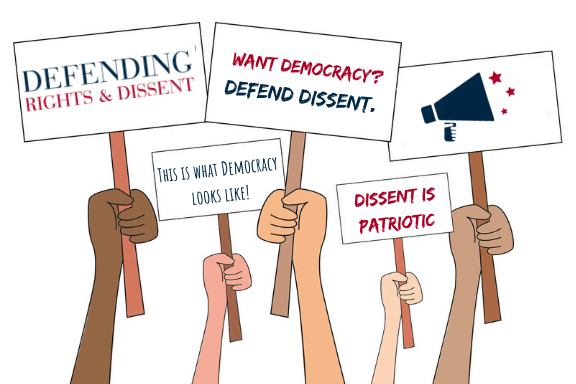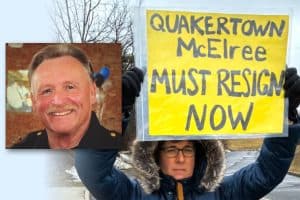Written by Emily Schwartz Greco, with Beth Gazley, Indiana University
The U.S. House of Representatives has passed a bill that would empower the Treasury Department to eliminate the tax-exempt status of any nonprofit it deems to be supporting terrorism. The Stop Terror-Financing and Tax Penalties on American Hostages Act was approved in a 219-184 vote, with all but one Republican backing it and only 15 Democrats voting for it, on Nov. 21, 2024.
The Conversation U.S. philanthropy and nonprofits editor Emily Schwartz Greco spoke with Beth Gazley, an Indiana University scholar of nonprofits, local governance and civil society, to better understand the outcry over this measure – which would have to pass in the Senate before a U.S. president could sign it into law. President-elect Donald Trump, who will take office in January 2025, will begin his second term with narrow majorities in both chambers of Congress. That means an identical or similar bill could come across his desk after being reintroduced in the next Congress.
Why are so many people concerned about this bill?
I believe that this is part of a strategy to preempt opposition to Republican policies and encourage self-censorship. It’s a way for the GOP to try to restrict what activists and nonprofit organizations can say or do. And, essentially, it’s a threat to political opponents of President-elect Donald Trump.
This kind of law could become a blunt sword that can be used against everybody.
I’m not the only one who feels this way. U.S. Rep. Jamie Raskin, a Democrat who previously was a constitutional law professor, called the bill “a werewolf in sheep’s clothing.” Raskin observed that “rendering support to terrorists is already a felony” and warned that this bill could end up “capsizing” all rights to due process.
Several nonpartisan groups and associations representing a wide array of nonprofits, including the Council on Foundations, Independent Sector, the National Council of Nonprofits, and United Philanthropy Forum, issued a joint statement that condemned this measure ahead of its passage in the House. The groups said they were concerned that it would provide “the executive branch with expansive new authority that could be abused.”
What do you think ‘terrorism’ means in this context?
An earlier version of this legislation was introduced in December 2023 and passed in the House in April 2024. Based on the timing, it was widely interpreted as an attempt to quell widespread protests by students and other people who were expressing their solidarity with Palestinians and their objections to Israel’s military operations in Gaza.
But this legislation could easily do far more than that because it does not distinguish between foreign and domestic terrorism – whether it’s real or imagined.
Until now, the Treasury Department has taken great care in how it defines domestic terrorism, observing on its website that the Constitution and U.S. laws “protect a wide range of expression – even expression that many might disagree with or find abhorrent, and even expression that certain foreign allies and partners of the United States prohibit and criminalize under their own laws.”
U.S. law stipulates that The Treasury Department has an obligation to remain nonpartisan in any of its interactions with tax-exempt organizations.
As a result, making it easier for federal authorities to allege that a nonprofit is “terrorist” would be a big departure from American traditions. It could be turning the term into a kind of political rhetoric that’s meant to intimidate activists, including those holding campus protests.
The lack of a clear definition in the legislation would leave room for interpretation. It’s not clear who would be held liable – it might even be the nonprofits’ donors.
Constitutional protections may protect people in the end who get caught up in these allegations, but there’s no way to know how far this could go or how much it might upend their livelihoods while they defend themselves.
What other concerns do you have?
This bill reminds me of what’s happening around the world in countries where support for democratic principles is declining and right-wing governments are restricting dissent.
I’m currently working with Jennifer Alexander, a public administration professor at the University of Texas at San Antonio, on a paper about this trend and how it’s tied to what’s already happening in many U.S. states. We’ve found this pattern most prevalent where the Republican Party has full control over the government – the GOP occupies the governor’s mansion and has a majority in both legislative chambers.
We have found that at least 22 U.S. states have either passed new laws restricting protests or tightened laws that were already on the books, increasing the severity of possible punishment. These laws restrict public advocacy and organizing.
I can see it being used to clamp down on environmental protests, like the ones held in Atlanta to object to the construction of a police training center in an urban forest, or in North Dakota, against the construction of an oil pipeline.
INTERVIEW: Ralph Young on His New Book ‘American Patriots: A Short History of Dissent’
This kind of measure could lead to more severe crackdowns, should there be a new wave of Black Lives Matter protests, similar to the ones in 2020 that followed George Floyd’s murder. Many of those demonstrations were organized by nonprofit groups.
In Texas, state authorities have attempted to shut down charities that assist immigrants, leading to an outcry from civil rights groups.
And Indiana Attorney General Todd Rokita has launched a probe of companies and nonprofits, including the God Is Good Foundation, that have allegedly conspired to bring noncitizens to the state.
What do you think would happen if this measure were to become law?
I can see how people intending to continue with the kind of mass mobilization organized by nonprofits might decide to go underground – to avoid the repercussions of activity that I would argue is clearly protected by the U.S. Constitution.
Even without this measure becoming law, it has become possible for an organizer to be held liable in court for damage or injuries incurred during a demonstration – even if they personally did not engage in violence or destruction.
Officially labeling an organization as “terrorist” can be very powerful. If this were to start happening, some of the population would never see that group any other way again.
Many authoritarian regimes like to use this propaganda tool because it makes the public distrust those organizations. It places these organizations outside acceptable norms of civic engagement, despite nonprofits’ right to freedom of speech, assembly and petition embedded in the First Amendment to the Constitution.
Beth Gazley is Professor of Nonprofit Management and Policy at Indiana University.
This article is republished from The Conversation under a Creative Commons license. Read the original article.






